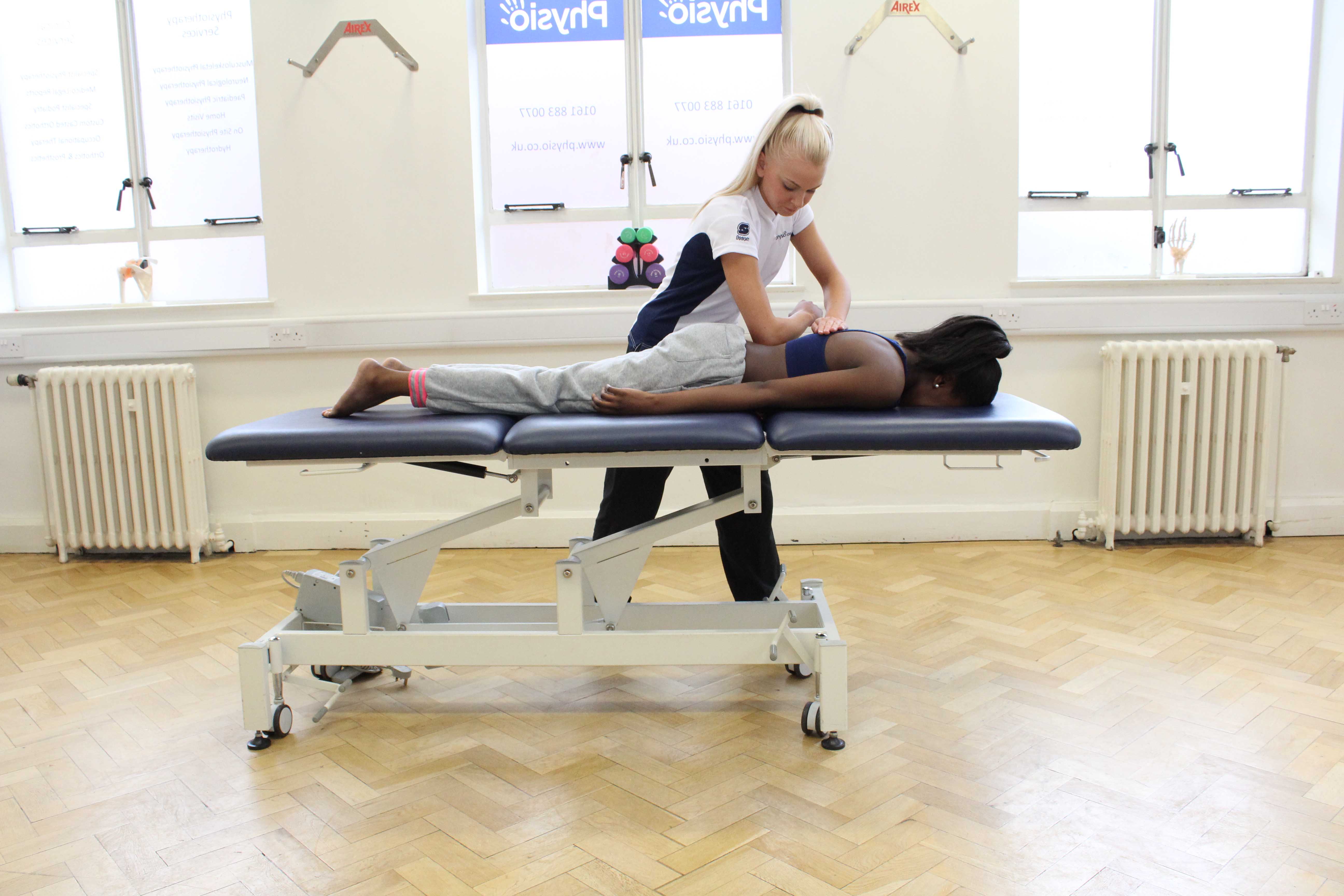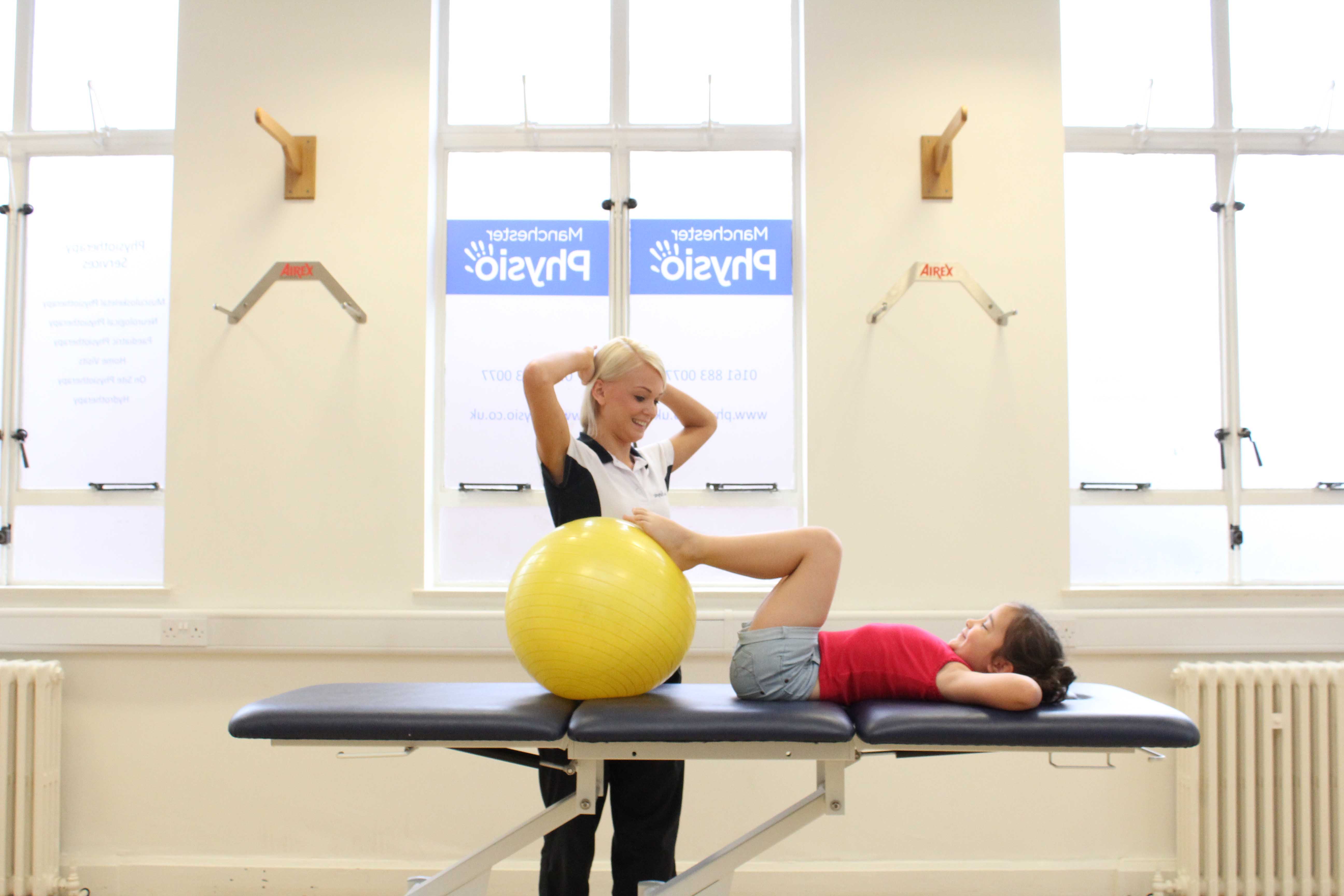What is myotonia congenita?
Myotoniacongenita is an inherited neuromuscular condition that affects the muscles which are involved with movement. A person with myotoniacongenita will have difficulty relaxing their muscle after it contracts causing rigidity of the muscle. The disorder is congenital which means that it is present from birth and can progress with age depending on the type of myotoniacongenita.It can affect any skeletal muscles, including muscles of the face and tongue but itcommonly occurs in the legs.
Diagnosis of myotoniacongenita?
Diagnosis of myotoniacongenita is an inherited condition and the two forms of myotoniacongenita have different patterns of inheritance. Your doctor will take a detailed medical and family history in order to make a diagnosis. A special muscle test called an electromyelogram (EMG) is done to check the health of the muscles.Myotonic muscular dystrophy has similar symptoms so a genetic test is usually done to exclude it.
 Above: Deep tissue massage to the lumbar region by physiotherapist to lower muscle tone and aching
Above: Deep tissue massage to the lumbar region by physiotherapist to lower muscle tone and achingWhat causes myotoniacongenita?
Myotoniacongenitais caused by changes in the gene, which alters the electrical charge of a skeletal muscle causing long-lasting muscle contraction. It is passed on by one or both parents.
What are the effects / symptoms of myotoniacongenita?
The symptoms of myotoniacongenita, and their severity vary depending on the specific type ofmyotoniacongenita a person has and how old they were when the symptoms were first experienced. The two main types of myotoniacongenita are:-
- Becker disease – more common usually affecting the arms and hands, appearing later in childhood, which might develop and persist over time.
- Thomsen disease – less common beginning in childhood, often infancy and symptoms are milder and do not become worse over time.
 Above: Specialist physiotherapist supervising lower limb stretching exercises using a gym ball
Above: Specialist physiotherapist supervising lower limb stretching exercises using a gym ballPhysiotherapy
At Physio.co.uk know that staying active with regular physical activity will help a person with myotoniacongenita. Our specialised neurological physiotherapists understand that a person with myotoniacongenita will face difficult changes with everyday activities. Physiotherapy treatment will benefit you be helping you stay active and working to the best of your ability. Our motivated physiotherapists provide specialised care tailored to you individual which will enhance your quality of life. Treatment sessions are focused around:
- Promoting relaxation of muscles
- Increasing endurance and stamina
- Improving balance and posture
- Preventing muscle shortening
- Improving walking
- Advice on health and diet
- Improving safety
- Reducing pain and muscle stiffness
- Advice and support with activities of daily living
- Promoting independence
- Improving quality of life
- Muscle stretching to help lengthen tight muscles and reduce stiffness.
- Warming up exercises to help control muscle cramps.
- Activities to increase endurance and enhance functional abilities.
- Walking to help limit muscle shortening.
- Massage for soothing pain and relieving rigidity.
- Hydrotherapy for building stamina and to help relax muscles.

 0330 088 7800
0330 088 7800


































